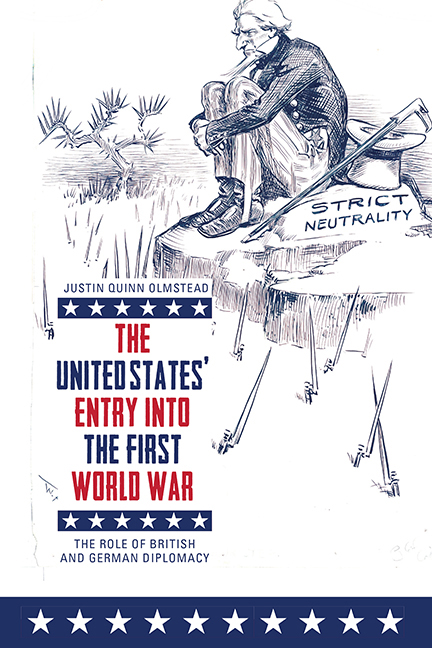Book contents
Preface and Acknowledgements
Published online by Cambridge University Press: 12 October 2019
Summary
The person seeking a greater understanding of First World War diplomacy, and of diplomacy in general, must look beyond the four years of war to understand why diplomats and politicians made some of the decisions that they did. The diplomatic policies that Britain and Germany pursued in their attempts to acquire American assistance during its period of neutrality followed the same patterns as those formulated in previous decades, and the significance of this history should not be underestimated. That First World War diplomacy was an extension of long-established British and German strategic policy toward the United States is key to understanding the diplomatic and foreign policy decisions being made. This continuity played a determining role in the American entry into the war.
In the one hundred years since the end of the First World War, scholars have written innumerable articles and books concerning every aspect of America's entry into the war, analyzing German, British, and US diplomacy. Historians have focused on German blunders, the apparent ineptitude of Germany's diplomats, and the perceived success of Britain's Foreign Office. Analyses have also focused on the diplomacy surrounding particular periods: from the assassination of the Archduke and the crucial first months to the international relations between European powers. A few have looked at the official propaganda's impact on both population and government, and others have examined a particular event in the war and attempted to build a case on that one incident. Those who have written about the period of US neutrality tend to focus on US President Woodrow Wilson's view of the war, belligerent propaganda aimed at the United States, or the impact of the dueling blockades. There has been no adequate discussion of the diplomatic efforts used by the British and German Foreign Offices as they attempted to bring America into the war. This book seeks to fill this gap in the debate.
This is not a hagiography about President Wilson, British Foreign Secretary Sir Edward Grey, or German Chancellor Theobald von Bethmann Hollweg. This is a book about the foreign policy and diplomacy used by the British and Germans in their respective attempts to direct US involvement in the First World War.
- Type
- Chapter
- Information
- The United States' Entry into the First World WarThe Role of British and German Diplomacy, pp. vii - ixPublisher: Boydell & BrewerPrint publication year: 2018



